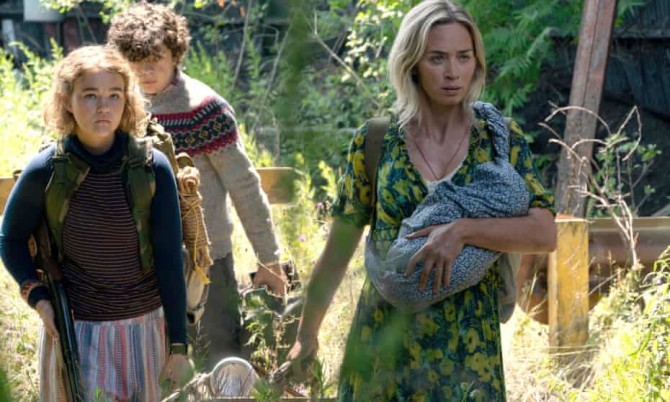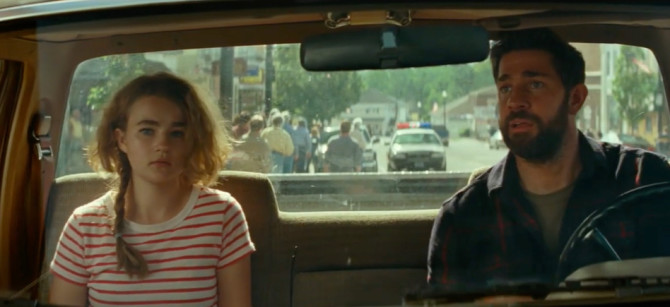It’s taken 45 years to do, but Scriptshadow has finally decoded the secret to Star Wars’s success. And now you can use this secret in your own screenplays!
It’s been a while since I’ve posted about Star Wars, mainly because there hasn’t been a lot of Star Wars to talk about. The Lucasfilm team seems perfectly okay with hiding out on Dagobah for the time being, tired of the Twitterverse questioning every move they make. As they reboot, they’d be wise to read this article, as I believe it holds the key to making Star Wars great again. Or any movie for that matter.
And really, it comes down to one of the most basic concepts in storytelling…
THE ACTIVE CHARACTER
One of the things you hear me talk about all the time on this site is ACTIVE CHARACTERS. An active character is someone who PUSHES FORWARD to achieve a goal. The reason active characters are so important to movies is because when a character is pushing forward THEY ARE TAKING THE PLOT ALONG WITH THEM. You can’t go after Thanos without bringing the entire plot of the movie along for the ride.
That’s why active characters are so valuable. Their actions write the movie for you. The second you switch to reactive or, worse, passive characters, you’ll notice your plot begin to stall. This is why you hear me rail against “waiting around” narratives. If your story is about, say, a couple of friends in a small town who are just trying to survive the boredom of summer, you’re dealing with two passive characters. And since they aren’t going anywhere, neither is your plot.
The use of active characters should extend beyond your hero, though. Ideally, you would like your villain to be active as well. The idea is that on one side you have your hero, who’s actively pursuing his goal. On the other side, you have your villain, who’s actively pursuing his goal. Then you construct the story in such a way that these two goals collide. That’s what causes all the conflict in the movie, is the constant intersection of those goals.
This is why Die Hard remains, to this day, one of the greatest movies ever. On the one hand you have John McClane, who’s trying to save his wife (his active goal). On the other, you have Hans, who’s trying to steal a bunch of money (his active goal). And those two goals collide. John cannot achieve his goal without interrupting Hans’s pursuit. And Hans cannot achieve his goal as long as John keeps getting in the way. Where those goals collide is the playground through which you explore your story.
But you can go one step further! What if it isn’t just your hero who has a goal and your villain who has a goal… but your main supporting character who also has a goal? What if you made him active as well?! This is where you start to see seasoned screenwriters pull away from the amateur crowd. Most amateurs are able to apply everything I’ve talked about so far. However, that’s where they stop. They make sure the hero is after something, the villain is after something, and they’re done.
Working screenwriters understand that the more active characters there are in your movie, the more opportunity there is for ACTIVITY. For PLOT. For CONFLICT. For ENTERTAINMENT. There’s more ON THE LINE. The idea is, the more people you have pushing on your story (active characters create “push”), the more energy your story is going to have.
Which leads us back to the original Star Wars, which I realized the other day may have the most active set of characters in movie history!
Check it out.
To start things off, we have R2-D2. He’s our original ACTIVE HERO in Star Wars. He has the Death Star plans that he must deliver to Alderran. R2-D2 is determined to secure an escape pod and shoot down to the planet of Tatooine NOW.
Following immediately behind R2-D2 is Darth Vader, our villain, and arguably the character in Star Wars with the strongest goal. He has to retrieve those Death Star plans before they make it into the hands of the Rebellion or else the Empire is doomed.
Our next active character is Obi-Wan. When he receives Princess Leia’s message, he becomes the primary active character in the script. He must deliver R2-D2’s Death Star plans to Alderaan. So now he’s squarely on the active train.
Of course, not far behind is Luke. Remember, Luke isn’t active at first. He’s stuck on the farm, unable to leave. But when his aunt and uncle are killed, Luke is all about helping Obi-Wan. From that point on, he becomes an extremely active character.
Next up we have Han Solo. Han could’ve easily been constructed as a passive pilot – a character merely meant to transfer Obi-Wan and Luke from Point A to Point B. But what fun would that be? Instead, Lucas gives Han his own goal. He owes Jabba the Hut a ton of money. Obi-Wan is giving him some of the money now and the rest after they achieve their mission. So it is extremely important that Han succeed. Now HE’S a super-active character.
Finally, you have Princess Leia. Princess Leia was technically an active character before anyone, since she’s the one who initiated the mission to get the Death Star plans to Alderaan, inserting them into R2-D2. But because she’s captured early by Vader, she doesn’t get a chance to display her activeness. However, the second they rescue Leia, she arguably becomes the most active character in the group, blasting open walls to create escape opportunities and making sure they get to the Rebel base in one piece.
Every single main character in Star Wars is EXTREMELY active.
I don’t think that’s an accident. I think it’s a major contributor to why the movie is one of the best of all time. Again, whenever you make a character active, you are inserting a unit of ‘forward-moving energy’ into the story. The very nature of activity is that you are attempting to push something along. So it makes sense that with every additional active character, you are adding more energy to the mix. At a certain point, if that many characters want something, your movie is this giant blinding force of energy that can’t be stopped.
Now it’s important to remember that not all activity is created equal. Someone can be active by painting their house in hopes that it will look nice when the in-laws visit for the weekend. Someone else can be active by hunting down the man that kidnapped their daughter. No matter what you do, Active Kidnapper Hunter is always going to inject more energy into the script than Active Painter Husband.
The more intense the activity, the more energy there is in the story. That’s where Star Wars separates itself from other movies. Not only are there so many active characters, but all of them want their goal so badly that they’re bringing an insane amount of energy to the picture.
Something to keep in mind here is that Star Wars is a variation of The Hero’s Journey. The Hero’s Journey is just like it sounds. It’s a character going off on a journey. I bring this up because it’s always easier to make characters active when they’re on a journey. That’s because it’s hard to physically move from Point A to Point B of a journey without some level of activity.
In other words, Star Wars has an advantage. Its story is built around an “active-friendly” premise. It encourages active characters. You might not have that opportunity if you’re writing a contained thriller. But that doesn’t mean you shouldn’t try to write active characters. In fact, I would always start out with any character you create, trying to make them active. I don’t care if it’s the hero or the 8th most important character in your script. Active characters create plot opportunities. Passive characters wipe story out. It’s hard to come up with plot ideas if your characters aren’t leading the charge.
And just to be clear, I understand that every movie is different. Empire Strikes Back’s first 20 minutes is technically a “waiting around movie.” But the reason it works is because at least one major character, Darth Vader, is actively pursuing something. He’s trying to find the secret rebel base which he will then attack. So even if you can’t create a plot where everyone is active all the time like Star Wars, make sure that as many of the major characters are actively pursuing something as you can. That’s why, instead of completely waiting around in the first act of Empire Strikes Back, they had Luke get attacked by the Wampa. That gave Han a goal (find Luke) which allowed him to be ACTIVE.
I’ll finish up by asking the question again. Is it any coincidence that the greatest movie of all time has six of the most active characters of all time in it? I don’t think so.
Carson does full screenplay consultations as well as consultations for pilots, loglines, outlines, treatments, whatever you’ve got! If you’re interested in getting a consultation, e-mail carsonreeves1@gmail.com with the subject line “Consultation.” Looking forward to working with you!
Genre: Drama/Thriller
Premise: A patriotic pipeliner from the heartland of America must go to France to prove his daughter’s innocence, as she’s in prison for the murder of her Arab lover.
About: You may have heard me talking about this one in the newsletter. It’s directed by Tom McCarthy (Spotlight) and stars Matt Damon. The movie is coming out in July.
Writers: Thomas Bidegain | Noé Debré | Marcus Hinchey (screenplay) and Tom McCarthy
Details: 122 pages
One of the obstacles you’re faced with when writing an “adult” movie is deciding how much of the Hollywood formula you want to ditch and how much you want to keep. Traditional story mechanics (a beginning, middle, end, GSU, conflict, drama, etc.) will work across all demographics.
But there is something to be said about muting commonly used components to make adult stories feel more realistic. It’s always a question of how much muting do you want to do. Because, at a certain point, you start eating into the drama. You start eating into the conflict. That’s the dilemma that today’s script faces. In its pursuit of realism, it dances with some decidedly non-dramatic choices. Let’s see how it turned out.
50 year old Bill Sedowski is a pipeliner. He’s the guy who digs into the earth and literally lays oil pipe, as American a job as someone can have. And that’s appropriate for Bill because he’s a hardcore American, the kind of guy who prays before every meal and doesn’t buy a cap unless it has the American flag on it.
So we see the fish-out-of-water contrast right away when Bill lands in Marseilles, France. It takes us a few scenes to realize why he’s here but we eventually learn his daughter, Allison, has been in prison for five years for the murder of her lover, an Arab girl named Lina. Bill heads over to the prison to see his daughter, something we realize he’s done dozens of times before. But this time she gives him a letter and says to please hand it directly to her lawyer, who isn’t talking to Allison anymore.
Bill does as told, trapping the squirrelly lawyer at the courthouse, who reads the letter (it’s in French) and tells Bill that she can’t help and that Allison needs to accept what she’s done. Nice lawyer! When Bill gets back to the hotel, he runs into a kind young woman named Virginie, who’s staying next to him, and he asks her to translate the letter for him.
It turns out that someone overheard some kids talking at a party and a dude named Mika was bragging that he killed Lina. Allison was hoping her lawyer could match his DNA against the crime scene. When Bill visits his daughter the next day, she asks, hopefully, if her lawyer accepted. Seeing the desperation in her eyes, Bill chooses to tell his daughter that the lawyer did accept. She’s going to look into it.
That now means, of course, that Bill will have to look into it. It’ll be up to him to find this Mika character. No small task considering he doesn’t even speak the language of the country. Bill finds some help in the girl who translated the letter for him, Virginie. She becomes his translator on this mission and off they go, determined to prove Allison’s innocence.
Let’s talk about some of these unconventional choices I alluded to in the introduction.
The first is coming into the story very late. In a traditional Hollywood movie, we’d show the events that led to the murder or wake up the night after the murder. From there, we’d watch the whirlwind unfold, requiring the father to fly from America and try to save his daughter.
But Stillwater starts a good FIVE YEARS into the process. That’s how long Allison has been in prison already.
I’m not sure how I feel about this. With movies, you’re always looking for situations that create a natural ticking time bomb, or at least some level of urgency. If you start the movie the day after the murder, for example, there’s a ticking time bomb in that the media and police are looking to charge Allison. That gives you a limited amount of time to prove her innocence.
By coming into the story so late, there is no urgency. She’s already in prison. Anything Bill doesn’t achieve now, he can try again in a week, a month, six months. That’s not ideal in storytelling. You want there to be an “all or nothing” component to achieving the goal. If Hero doesn’t achieve X by Y amount of time, he never gets another shot.
When movies move away from this, it’s usually because they want to “de-Hollywoodize” the storytelling so it feels more authentic. Seeing as Tom McCarthy threw all drama out the window to make Spotlight as realistic as possible, I’m not surprised he’s doing the same thing here.
The surprising thing is that, for the most part, it works. The reason for that is the characters. One of the best ways to deepen a story is to explore a broken relationship, usually within a family. But you can’t cheat. It can’t be bargain basement Tuesday backstory “Daddy didn’t hug me” stuff. It’s got to have some depth to it and some specificity, so it feels like there’s a real past here. And you need a little luck. You can do all this stuff right and for whatever reason it doesn’t work.
The part that hooked me in this relationship was when Bill was having Virginie translate the letter his daughter wrote (the letter is in French). Here is the last paragraph: “I am innocent of this crime and I have no one else to advocate for me in this situation. My mother is dead. My Grandmother can no longer make the trips to Marseille and you know my father. I would not trust him with this. He is not capable. You are my only hope.”
I mean how much more heartbreaking can you get than a daughter who doesn’t believe her father is capable of helping her? And that’s what sets up the compelling goal of the story, which is Bill trying to do the very thing that his daughter doesn’t think he can. But it isn’t just that. Bill’s not trying to prove his daughter wrong. He wants to save her. In the process, if he can, he’ll also get his daughter to believe in him again.
That’s why I wanted to stick around for this ride. I wanted to see if Bill could both save and win his daughter back. That’s when a screenplay really works, is when the reader is more invested in the character side of the goal than the plot side of the goal. In other words, you could’ve written this exact same movie but with a blander family backstory and still had that satisfying moment when the father proves his daughter’s innocence. But it works so much better when we feel the emotion of that actually mattering for the future of these characters.
In classic McCarthy fashion, he plays with storytelling fire, at one point jumping forward in the story FOUR MONTHS. When you do this, you erase all tension that you’ve built up so I highly advise against it. But the story is saved, once again, when the murder mystery returns to the script’s pole position and we learn what really happened that night. It’s quite the ending.
I don’t know if anyone under the age of 40 is going to like this movie. But the people who love to show up for those Clint Eastwood matinees are going to love it. :)
[ ] What the hell did I just read?
[ ] wasn’t for me
[xx] worth the read
[ ] impressive
[ ] genius
What I learned: This is a clever way of exploiting a well-known murder story, as this is obviously based on the Amanda Knox case. You can do this to come up with some good ideas of your own. You simply take an interesting real-life murder case (or any popular story in the news) and look for an emotional component to it and tell the story from that angle. You could have told the Amanda Knox story a number of ways. You could have told it through the point of view of Amanda. You could’ve told it through the point of view of the lawyer trying to get her off. You could’ve told the story in third person and cut back and forth between all of the main players. Today’s writers took the route of exploring what it would’ve been like to be the father of a girl accused of murder in another country. That’s what allows them to get away with, basically, stealing a well-known murder story.
The newsletter is out! Sign up if you want me to send it to you!
Genre: Horror
Premise: Taking place right after the previous film, the Abbott family must leave their farm and find shelter in a world where the survivors may be more dangerous than the monsters.
About: Movies are back, baby! A Quiet Place 2 brought nearly 60 million dollars in for the Memorial Day weekend. Director John Krasinski was notoriously manipulated by Paramount to direct the second film and I think everyone on both sides is glad he did because John Krasinski has single-handedly saved movies. That’s right, Krasinski, who rewrote Scott Beck and Bryan Woods’ original spec, went solo on the writing for the sequel. Don’t cry for Beck and Woods, though. They just finished shooting their mysterious directing debut, “65,” starring Kylo Ren.
Writer: John Krasinski (based on characters by Scott Beck and Bryan Woods)
Details: A scant 90 minutes
With both the Arclight and The Grove closed down, I was forced to venture into the land of unknown theaters. I zig-zagged my way east until I landed in Koreatown and that’s where I saw A Quiet Place 2. The film even had Korean subtitles for the few times that the characters spoke. I now know that the Korean word for “Shhhh” is… also “Shhhh.”
Our second Quiet Place starts with a flashback. Our father from the first film, Lee Abbott, is at his son’s baseball game, when he looks up and sees something smoky streaking through the sky. Soon everybody’s noticing this and people start getting nervous, so they file out to their cars.
Lee grabs his wife, Evelyn, along with their kids, Regan and Marcus, and head to their car, which is parked on main street. Within seconds, one of those terrifying creature things crashes into the crowd and starts stabbing everyone with its giant stabby legs. It’s a superbly directed scene and you can get the lowdown on how Krasinski directed it here!
Cut to present day and the Abbott family, minus Lee of course, since he died in the first film, has to find a new place to live. So they gather their things (along with their newborn baby who has a special ‘oxygen suitcase’ for when he starts crying) and away they go.
They eventually get to an old friend of Lee’s named Emmett, who lives in an abandoned warehouse. The family wants to stay with Emmett, who’s unsure, when Regan disappears one morning, determined to find the location of a radio signal that’s being sent out. Emmett is forced to go after her while Evelyn stays with an injured Marcus. Emmett and Regan team up and find the mysterious signal. But it may not be what they hoped for.
There’s this whole other story happening underneath the story of the Quiet Place franchise that’s kinda interesting. Krasinski always thought of the original film as, primarily, an opportunity to direct a feature. He didn’t even like people bringing up that it was a horror film. Whenever they’d ask him why he decided to make a horror film, he’d say he doesn’t see it as a horror film. But rather a film about family.
Why is this relevant? By Krasinski treating the original as an experimental one-off where he could hone his directing chops, he could make bold story choices, such as killing his character off. That usually doesn’t happen. The big male lead in a film always saves the day.
In addition to Krasinski not being all in, his wife, Emily Blunt, wasn’t all in either. She only did the film to help her husband out. Emily Blunt wouldn’t have been in A Quiet Place for any other director. So we see similar bold choices being made in A Quiet Place 2. In any other situation, Emily Blunt would become the big lead of the franchise. She’s the one who’s now going to save the day. But that’s not what happens.
Since nobody involved has any ego attached to the film, they can do whatever they want. And they do. They put the weight of the franchise on a deaf teenage character. That’s a bold choice right there. And it’s the reason A Quiet Place 2 shines. We’re never quite sure where the movie is going.
This works all the way up until the ending. John Krasinski is a good director and a fairly strong writer. That opening sequence is going to go down as one of the best movie sequences of 2021. But he clearly has some problems in the 3rd Act department. I remember the original Quiet Place ending being a little weak. This one is even weaker.
You know you didn’t stick the landing when you cut to black and the audience is expecting a fade in on the next scene. I could see everyone in the theater getting up, miffed that the movie had ended so abruptly.
Even if you want to argue the artistic merit of slamming into an ending like that, there are basic things that don’t work with audiences. One of those things is that when you make a film about a family, especially a horror film, you don’t end the movie with the family apart. The audience needs to see the family back together again.
I suppose you could make the argument that he’s setting up the third film. But that’s the strange thing about it. It’s not a big enough cliffhanger for us to be able to imagine a third film. It just felt sloppy.
Which is too bad because the rest of the movie is so good. Krasinski particularly shines with set pieces. Like I mentioned, the opening sequence is really good. We’ve seen similar sequences like it before. Such as the famous one in Spielberg’s War of the Worlds. But there was something so intimate about setting it in a small town that made the monsters’ arrival even more emotionally impactful.
The first moment they’re on main street – a nervous energy in the air – and that monster plows into an unsuspecting citizen… that moment brought me back to the movies again. It reminded me of the power of seeing films in a theater. And kudos to everyone on the Quiet Place team for coming up with a relatively small concept that demands to be seen in a theater.
Usually, horror movies are the same regardless of whether you see them in theaters or at home. Actually, they’re probably scarier at home. You’re not missing out on anything if you see The Conjuring in your living room. But you’re missing out on an experience if you don’t see A Quiet Place 2 in the theater. The sound design alone is worth the price of admission.
I know the Quiet Place bashers are going to be out in full force. There are still aspects of the concept that don’t quite make sense. Like trying to raise a baby who cries five times a day in a universe where you can’t make a noise. But what’s so impressive about A Quiet Place 2 is that the elements about it that work, work so well that you overlook the movie’s weaknesses. At least that was the case for me. Definitely check this out if it’s at a theater near you.
[ ] What the hell did I just watch?
[ ] wasn’t for me
[x] worth the price of admission
[ ] impressive
[ ] genius
What I learned: A Quiet Place 2 reminded me of the power of going into a scene thinking about SHOWING rather than TELLING. Krasinski had no choice but to start each scene off with the mindset, “Okay, how do I tell the story of this scene without words?” Even though you probably don’t have sound-hunting monsters in your own screenplay, this is still a great habit to have as a writer. When you start writing any scene, consider first how you might tell it without dialogue. You may find that it’s impossible. But every once in a while, you’ll come up with a way better scene than you originally had in mind. I guarantee it.
What I learned 2: This is going to be a weird “What I Learned” but stick with me. Vanity Fair does this cool thing where they have a director take them through the best scene in their movie. That’s what we see here with Krasinski taking us through the opening scene. So, whenever you’re about to write a set piece scene, try to write something that Vanity Fair would watch and say, “That’s the one we want you to break down.” And try to top yourself with every additional set piece. Even though you wrote the last one to be the Vanity Fair scene, try to make this next one even better than that one. I see too many writers settling for average set piece scenes. Your set pieces are the moments where you really get to show your movie off. You should try and make them as amazing as possible.
Lots of great stuff in this month’s newsletter. We’ve got the inside scoop on the Amazon-Bond deal. We’ve got an update on Kinetic. I give my opinion on JJ’s leading candidate to direct the next Superman. I growl about the Willy Wonka prequel. I smh at a certain director’s latest wtf trailer. I review a script that could be the next gigantic franchise. But will anyone take a chance on it? And, finally, I announce the last showdown of the year and it’s a doozy!
If you want to read my newsletter, you have to sign up. So if you’re not on the mailing list, e-mail me at carsonreeves1@gmail.com with the subject line, “NEWSLETTER!” and I’ll send it to you.
p.s. For those of you who keep signing up but don’t receive the newsletter, try sending me another e-mail address. E-mailing programs are notoriously quirky and there may be several reasons why your e-mail address/server is rejecting the newsletter. One of which is your server is bad and needs to be spanked.
I dug into my 2020-2021 archives and found the ten best screenplays of the last two years!
If you’re anything like me (and if you’ve been on this site for long enough, I’m assuming you are), you’re wondering, “What happened to all the great scripts?” These days, an “impressive” on Scriptshadow is as rare as a Twitter user admitting they were wrong. Paula Cole had this soulful moody tune where she asked, “Where have all the cowboys gone?”
Well I’m asking a similar question: “Where have all the screenwriters gone?”
My first thought was that I was a victim of recency bias. I was probably forgetting some great scripts just because the current strawberry crop was yielding such tiny berries. So I decided to go back through my posts and find the last ten “impressives” that I gave. I scrolled down through one page of entries – didn’t find my ten impressives. Then a second page. Still hadn’t gotten ten. Then a third! Keep in mind, these WordPress pages list 100 blog entries per page!
At a certain point, I stopped looking for impressives and just looked for scripts that left an impression on me. They might not have been great. But they were memorable. Which is almost as good. I forget most of the screenplays I read within a week of reading them. Which is a lesson unto itself. Because when you boil down screenwriting, what you’re trying to do is create something that sticks with a reader – that gets inside of them. How many elements from your screenplay can you say are unique enough or strong enough to be memorable?
So here are the ten. After we go through them, we can talk about what we learned.
Title: Towers
Genre: Drama
Logline: A businessman’s obsession with his competitor leads him down a rabbit hole of self-discovery, fantasy, and delusion.
Rating: [x] double worth the read
Analysis: This is one of the most unexpected scripts on the list because I typically don’t like these types of screenplays – where the writer is playing with reality in such a way that you don’t know what’s real and what isn’t. I’ve found that most writers use this approach as an excuse to get sloppy and write fantastical questions they never have to worry about answering. In short, they’re always messy. But Towers is different. It’s weird. It reminded me of the underrated, “Little Children,” about how the fragile mind deals with a mid-life crisis. I always say if you’re going to write something weird, don’t be afraid to be weird. Towers has its buttoned-up middle-management main character become obsessed with drag racing. It’s odd in a really cool way.
Title: Birdies
Genre: Comedy/Satire
Logline: When Tabitha, a struggling foster kid, wins a contest to become part of the BIRDIES, a popular daily YouTube channel featuring the radiant and enigmatic Mama Bird and her diverse brood of adopted children, she soon learns that things get dark when the cameras turn off.
Rating: [x] impressive
Analysis: Birdies is a great example of mixing the old with the new, which is one of the best ways to come up with good ideas. The script is basically a reverse “Annie” with a social media twist. The thing I remember most about the script was how it nailed the pressure of succeeding in this emerging entertainment world, and the lengths people will go to keep those views up – namely, abusing children. One of the best ways to make a script memorable is to go to dark places. And what’s darker than exploiting children for money and fame? What’s impressive is that the script somehow manages to do this while also being funny. That’s a fine tightrope to walk.
Title: Lakewood
Genre: Thriller
Logline: Told in real time, a young mother out for her morning jog gets word that there’s been a school shooting at the high school her son attends.
Rating: [x] impressive
Analysis: While weird scripts get the nod for “most memorable” in most cases, I’m a sucker for a bare bones good idea with great execution. That’s what Lakewood is. It does two things really well. First, it takes an old idea and comes at it from a fresh angle. A school shooting where we’re never at the school. Instead, we stay with a mother of someone at the school who’s trying to get information on what’s happening. Second, the execution is flawless. It’s hard to write a bare-bones story, which is what this is. It’s one woman with a phone. Chris Sparling is the master at taking a stripped-down premise and keeping the train moving. He knows exactly how much character development the audience needs. He knows exactly how much exposition they need. And everything else is about propelling the story forward. Great stuff.
Title: Ambulance
Genre: Action
Logline: After a bank robbery gone wrong, two brothers attempt to use a stolen ambulance as a getaway car.
Rating: [x] impressive
Analysis: “Ambulance” is a lot like Lakewood in that it moves fast. But the plot is way more intricate. And that’s what drew me in. I loved how the writer, Chris Fedak, followed different characters along different paths before finally bringing them together into this wild ride on this ambulance. I mean you talk about ‘energy’ – which is a word I don’t often use when referring to screenplays – but there is a clear energy on these pages that I rarely see. It was like each of these paragraphs were being blasted out of a nuclear reactor. This is such an intense script.
Title: Voicemails for Isabelle
Genre: Rom-Com
Premise: A low-level TV writer struggles to cope with the death of her little sister by continuing to leave her voicemails chronicling the shitshow that is dating in LA. When the phone number is unknowingly transferred, a cocky New York real estate agent begins receiving the voicemails, and feels compelled to meet their creator.
Rating: [x] double worth the read
Analysis: Voicemails for Isabelle is easily the most unlikely entry on this list. In addition to rom-com bias (I enjoy, maybe, one romantic comedy script every 18 months) this concept isn’t exactly fresh. Nobody leaves voicemails anymore. So how did this script overcome that issue? Because of writer Leah McKendrick’s incredible ear for dialogue. The dialogue SINGS in this script, so much so that you literally forget you’re reading a script every time a new scene starts. The interesting think about Leah is she never formally learned screenwriting. She just really liked writing dialogue scenes between people. Clearly, she’s amazing at it. Cause this rom-com rom-rocked.
Title: They Cloned Tyrone
Genre: Sci-Fi/Comedy
Logline: A group of friends in a crime-ridden black community are thrown into disarray when they learn they’re being experimented on by evil white people.
Rating: [x] wasn’t for me
Analysis: The only ‘wasn’t for me’ on the list! So why does it make the list? When I first read this, it came off as too wacky for me. But as I was scrolling through all of the scripts I’d reviewed in WordPress, when I got to They Cloned Tyrone, I remembered it immediately. First off, that goes to show how important a good title is. But it also highlights the power of weirdness and how, if you’re writing a script that hits the same beats as every other script (aka, you’re writing a “John Wick” clone), it’s nearly impossible to make that memorable. But if you’ve got black people discovering that their entire community is being run by a series of underground white puppet-masters who are cloning and experimenting on them… it’s rare someone’s going to forget that. I still think this script is too goofy for its own good. But it’s stayed with me.
Title: Street Rat Allie Punches Her Ticket
Genre: Sci-Fi/Fantasy
Premise: An 18-year-old skateboarding “rat” named Allie finally gets her chance to leave the garbage dangerous futuristic city she’s grown up in. But will she be able to leave her fellow “rats” who must now fend for themselves?
Rating: [x] impressive
Analysis: One of my favorite things about reading is thinking I’m in for two hours of boredom only to end up having the time of my life. Sci-Fi/Fantasy is probably the single hardest genre to get right. You’re not just inventing characters. You’re not just inventing a plot. You’re inventing AN ENTIRE UNIVERSE. And almost every writer I know who’s tried to tackle this combo ends up writing exponentially inferior ripoffs of concepts from Star Wars or Lord of the Rings. Not only did Nicholl-winner McKnight overcome that obstacle, but he constructed an early-Spielbergarian protagonist in Allie. Remember one of the 10 Commandments in screenwriting:. If you write us a sympathetic likable main character, we will want to follow them through anything. McKnight nails that commandment.
Title: Resurrection
Genre: Thriller/Drama/Horror
Logline: A single mother in New York City begins seeing a mysterious older man from her past around town and becomes convinced that he’s come back into her life to kill her daughter.
Rating: [x] impressive (TOP 25!!!!)
Analysis: For someone who claims they hate vague narratives, I sure seem to prop a lot of these vague scripts up. I think what I really dislike is vague narratives DONE BADLY. Resurrection is all about this woman who’s losing her mind. She becomes convinced she’s being followed by a controlling ex-boyfriend who’s back to make her life miserable. Yet the person she believes is this man who keeps telling her he doesn’t know who she is. So it’s another, “What’s real and what isn’t?” plot. But what makes Resurrection stand out is its weird and daring choices. There’s a scene in this movie where the guy tells our heroine that he ate their baby that is so freaky I can’t even begin to describe it. This script is on another level. Another level of f&%$d up.
Title: All The Old Knives
Genre: Thriller
Logline: Two CIA operative former lovers meet for dinner and try to figure out what happened five years ago with a complicated hostage plane takeover in Vienna they were involved in.
Rating: [x] double worth the read
Analysis: I love contrast in screenplays. I love when writers balance one extreme against another. Here, we have this intense horrifying hostage situation being played against a soft easy-going dinner between two former lovers. Usually, movies will opt for one kind of narrative or the other. Rarely do they include both. So while jumping back and forth between these narratives is jarring, it’s also exciting. And each narrative has a compelling question attached to it. What happens during this hostage situation? Does everyone live or die? And, with the dinner, will these former lovers end up together again? The script also has some fun twists and turns. All The Old Knives doesn’t stick the landing. But the preceding handspring into a double front flip sure is entertaining.
Title: The Laborer
Genre: Horror
Logline: A pair of out-of-work immigrant brothers catch a break when they are hired as day laborers for a house in the Hollywood Hills, only to find out that it’s home to a vampire.
Rating: [x] impressive
Analysis: This was one of my more controversial ‘impressive’ picks but I still contend that it’s a great screenplay. I always like when writers combine situations that don’t traditionally go together. When I think of two day laborers doing work on a house, I don’t imagine them discovering a vampire being housed in the basement. From there it becomes this clever commentary of how the rich take advantage of the poor. Also, it’s unpredictable. If there’s any theme that you get from these scripts I’ve celebrated today, it should be that most of them are unpredictable. And that’s often because the writers will write these scenes that take you somewhere you didn’t expect to go. There’s a bath house scene in The Laborer that took me to that place. The Laborer is weird and unexpected in all the right places.
So, there it is! What conclusions can we draw from these scripts? What unifying factor helps them stand out from the pack? Well, there seems to be three distinct lessons here. Number one, “write weird with a purpose.” Write something weird, like The Laborer or Towers or Resurrection, but have a purpose. Don’t be David Lynch where you have no idea where you’re going and don’t care. Even if the parts of your story are vague to the audience, you, the reader, should always know the truth. Number two, twist a familiar concept. Birdies is a 2021 “Annie.” Lakewood is an unexpected update on a mass shooting movie. The writer tells the tale from a new point of view. And number three, be clever with your execution. When I read Ambulance and Street Rat, I was constantly impressed by the way the story evolved and came together. Characters intersected in surprising yet always believable ways.
What about you guys? What have some your favorite scripts been over the last year and what qualities would you say are consistent in them?









